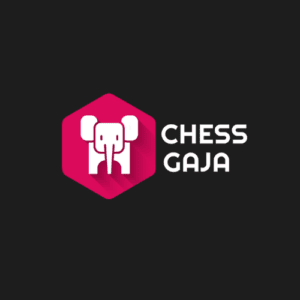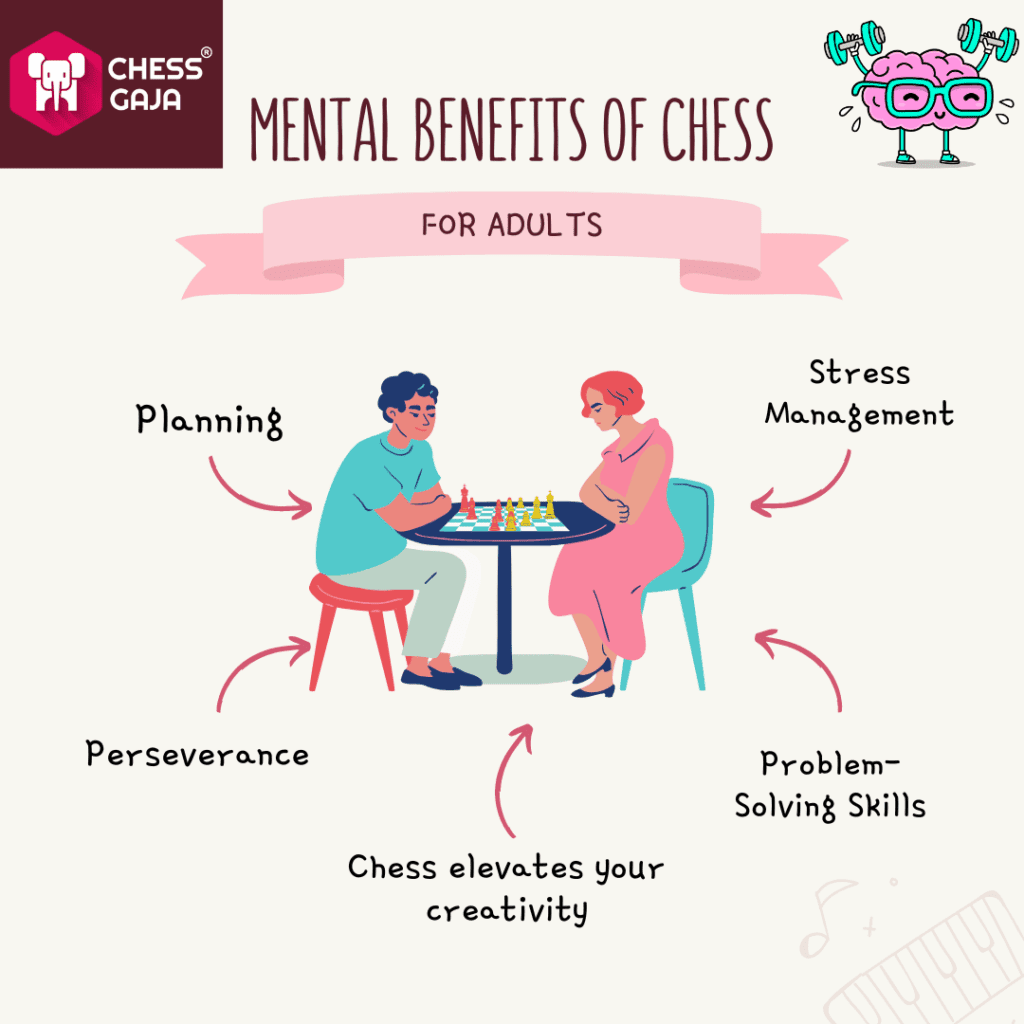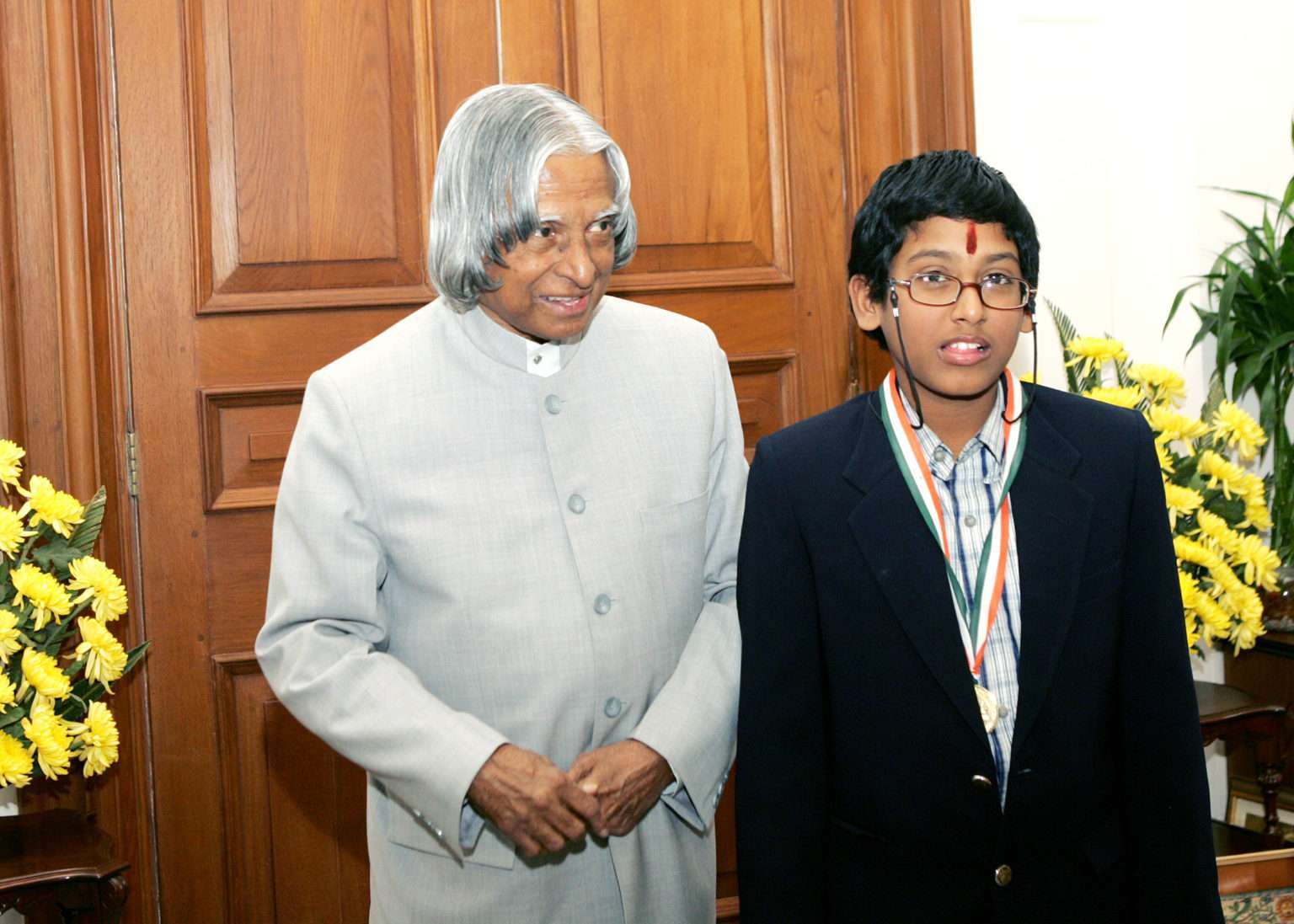Chess is a game that has been played for centuries and is still popular today. While many people may think of it as just a game, there are many mental benefits of playing chess, especially for adults. This blog looks at the mental advantages of chess, such as its effects on stress, determination, problem-solving, and planning.
Planning
- Chess requires players to think ahead and strategize to win the game, allowing for the development of planning skills
- The game teaches players to anticipate their opponent’s moves, which can be applied to other areas of life
- Planning is a critical component of success in many aspects of life, including work and personal projects
- Chess offers an opportunity to develop planning skills in a fun and engaging way, allowing for practical application in other areas
- Playing chess can lead to better decision-making and more success in life..
Stress Management
- Chess is an effective way to reduce stress and anxiety
- Concentration and focus required in chess help players take their minds off stressful situations
- Playing chess serves as an excellent stress management tool, helping players relax and unwind after a busy day
- The game offers a welcome distraction from the pressures of everyday life, allowing players to focus on a task that requires mental engagement
- By channeling their energy into the game, players can release tension and relieve stress, making chess a valuable tool for promoting mental well-being.
Perseverance
- Chess requires patience and perseverance, as players must think critically and make calculated moves even in difficult situations
- Playing chess can help develop perseverance skills and teach players to keep going in the face of adversity
- The game requires spending a lot of time thinking and being patient in the face of setbacks and challenges
- Developing patience through chess can be applied to other areas of life
- Forethought and systematic thinking is essential in chess, and patience allows players to slow down and make strategic moves, and there are techniques and skills to develop patience for those who struggle.
Problem-Solving Skills
- Chess demands critical thinking and complex problem-solving abilities
- Multiple options are presented to players, requiring the selection of the best move based on the opponent’s possible reactions
- This process helps develop problem-solving skills that can be used elsewhere.e
- In order to win a chess game, players must use problem-solving skills to determine the best move
- Playing timed games allows players to learn to solve problems quickly and accurately, making chess an excellent training tool for on-the-fly problem-solving.
Chess elevates your creativity
- Playing chess can have a positive impact on right-brain activity
- The right hemisphere of the brain is responsible for creative thinking
- People with right-brain dominance are often better at performing creative tasks
- Chess players develop a pattern of thinking that enhances their creativity and ingenuity
- This type of thinking can be applied to problem-solving in various areas of life, including work
- Chess can generate new ideas, improve old ones, and lead to innovative and novel solutions
- Playing chess not only improves cognitive function but also enhances creativity
- Developing the right brain can broaden and enhance a person’s skills
- This can lead to increased productivity and creativity in various areas of life.
Playing chess can offer more than just entertainment; it can help individuals develop valuable life skills that can be applied in various areas. Playing chess builds problem-solving, perseverance, and planning skills to bring success in life.. So, whether you’re a seasoned chess player or just starting, take advantage of the mental benefits that this game offers.









